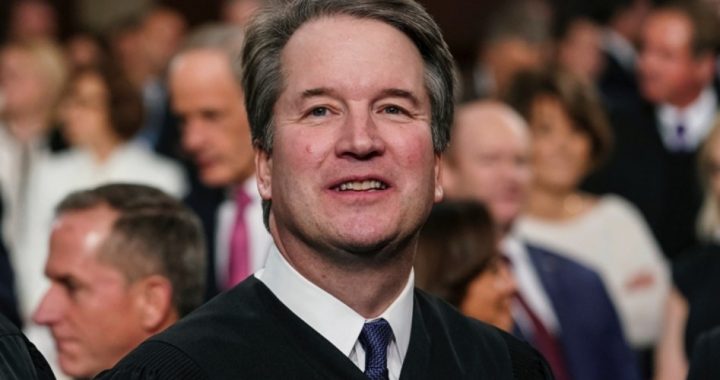
Podcast: Play in new window | Download ()
Subscribe: Android | RSS | More
It appears that the latest hit on U.S. Supreme Court Justice Brett Kavanaugh, a “news analysis” that appeared in the New York Times to plug an anti-Kavanaugh book, will go crash and burn with the rest as a failed smear job.
The authors, Robin Pogrebin and Kate Kelly, introduced a new, fact-free allegation against Kavanaugh, but they failed to disclose four major facts that bear upon the honesty and impartiality of their work and that of editors at the newspaper.
Among those facts: One of the writers knew Kavanaugh at Yale and was the roommate there of a key player in the Kavanaugh confirmation battle.
The opinion piece that lodged the new accusation was mostly a reprise of the tale of put-upon “victim” Debbie Ramirez, the Kavanaugh classmate who didn’t remember that Kavanaugh “assaulted” her until her friends reminded her.
Upshot is, the piece in the Times flopped, and the Times and its writers are discredited.
The Latest
The story, based on The Education of Brett Kavanaugh: An Investigation, began unraveling almost the minute the Times published it.
Aside from rehashing Ramirez’s unproven allegation that Kavanaugh exposed himself to her at a party in college, the piece added another evidence-free accusation about a similar “incident.” But that new charge had two problems: The putative “victim” recalled no such event and refused to speak with reporters. Nor did the key witness talk to the reporters.
When The Federalist’s Mollie Hemingway divulged those exculpatory facts about the “victim,” which appeared in the book but not the “news analysis,” the writers blamed the editor. But that prompted Hemingway to tweet this key question about their passing the buck: “They don’t explain why they signed off on inaccurately edited version or why they didn’t say anything all day yesterday.”
The witness, Max Stier, who “runs a nonprofit organization,” Pogrebin and Kelly wrote, “notified senators” about the allegation during Kavanaugh’s confirmation hearing but has said nothing more about it.
Stier’s background was their second omission. The writers failed to inform readers that Stier was a member of President Bill Clinton’s defense team during his impeachment — at the same time Kavanaugh was part of independent counsel Ken Starr’s squad investigating Clinton’s misdeeds and perjury that led to the impeachment.
During an interview with MSNBC’s Lawrence O’Donnell, who was recently forced to retract a false claim about President Trump, Pogrebin offered her theory about Stier’s silence:
My sense is that he feels as if he did his duty, which was he brought the information that he had to the Senate — to senators and to the FBI. He made them all very aware that he had this experience that he had witnessed firsthand in a dorm room during his freshman year at Yale. What they did with the information was up to them. It never materialized and became part of the process.
Or maybe Stier’s claim is false, given that he surely would have used the information against Kavanaugh during the Clinton scandal.
Other Details
Yet other details have also surfaced to directly bear upon the impartiality of Pogrebin.
First, as she admitted in an interview, she knew Kavanaugh at Yale. “I was in Brett’s class at Yale. It didn’t influence it. We weren’t friends. I knew him to kind of say hello.”
That might well be unremarkable, except that Pogrebin and Kelly did not divulge yet another salient fact in their “news analysis.” Pogrebin roomed with a key figure involved with last year’s swirl of allegations.
“Pogrebin was long-time roommates at Yale with Kathy Charlton, a woman centrally involved in the anti-Kavanaugh efforts (according to public statements from her husband),” Hemingway tweeted. “That she was roommates is briefly disclosed, but Charlton’s coordinating role is not.”
Charlton attempted to push the story that Kavanaugh tried to squash the Ramirez allegations, published in the New Yorker, by contacting former friends.
Last, Vanity Fair added this significant item: The Times news section rejected the piece because “top editors ultimately felt that there wasn’t enough juice to warrant a story there, let alone a big page-one treatment.”
Ford, Ramirez
Hemingway has also reported that the book and an excerpt in The Atlantic contain the major error that key witnesses “kept mum” about the Ramirez accusation. In fact, witnesses told the New Yorker the assault never happened, as The New American reported when the Pogrebin-Kelly piece appeared.
And as TNA reported yesterday, Hemingway, the author with Carrie Severino of Justice on Trial: The Kavanaugh Confirmation and the Future of the Supreme Court, also uncovered another fact in the Pogrebin-Kelly book absent from their “news analysis,” which brings the number of major omissions to four: Leland Keyser doesn’t believe Kavanaugh assaulted Christine Blasey Ford, the justice’s original accuser.
Photo: AP Images



